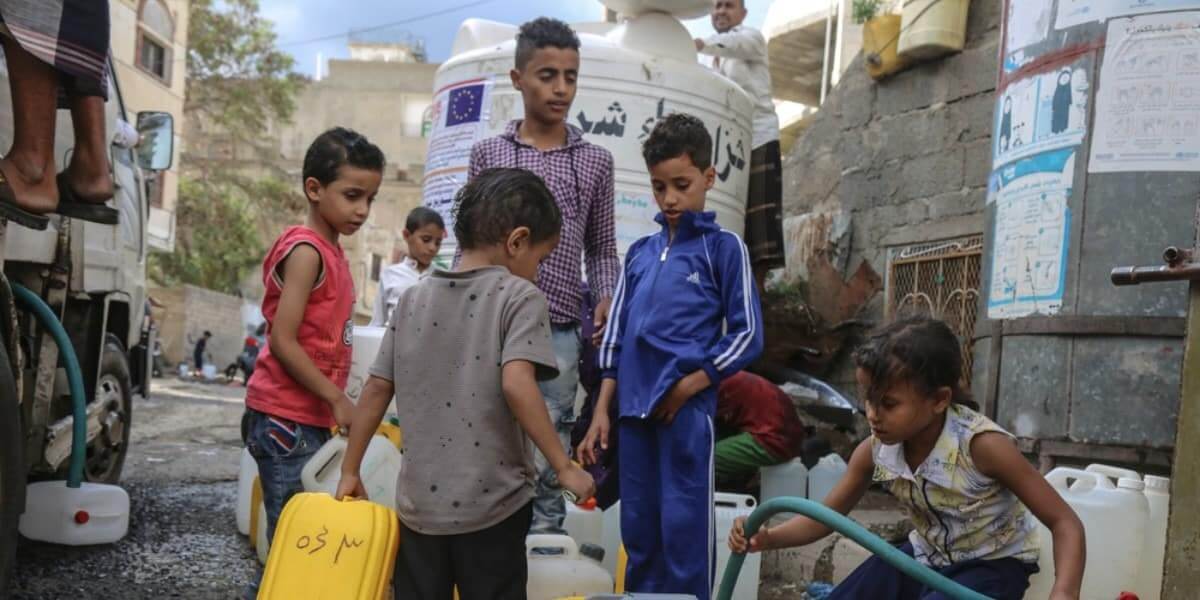COVID-19 to add as many as 150 mln extreme poor by 2021, Islamic countries included
Global extreme poverty is expected to rise in 2020 for the first time in over 20 years as the disruption of the COVID-19 pandemic compounds the forces of conflict and climate change, the World Bank said in a report released on Wednesday (Oct 7).
According to the report, extreme poverty is likely to affect between 9.1% and 9.4% of the world’s population in 2020. Poverty reduction was slowing before the COVID-19 crisis, when experts expected the rate dropping to 7.9% in 2020.
“The pandemic and global recession may cause over 1.4% of the world’s population to fall into extreme poverty,” World Bank Group President David Malpass said, launching the biennial Poverty and Shared Prosperity Report.
The multilateral financial institution projects that, in 2020, between 88 million and 115 million people could fall back into extreme poverty as a result of the pandemic, with an additional increase of between 23 million and 35 million in 2021, potentially bringing the total number of new people living on less than $1.90 a day to between 110 million and 150 million. The numbers depend on the severity of the economic contraction.
COVID-19, climate change, and armed conflict are driving poverty, including in the Middle East and North Africa where extreme poverty rates nearly doubled between 2015 and 2018, from 3.8% to 7.2%, spurred by conflicts in Syria and Yemen.
East Asia and Pacific, South Asia, and Sub-Saharan Africa have high female poverty; the widest gaps are among children. Girls are more likely than boys to be overrepresented among the poor, as are women in their reproductive years across the world.
NEW POOR
About 82% of middle-income countries will see significant numbers of people slip below the extreme poverty line, the World Bank estimates.
The emerging new poor global profile suggests that a large share of it will be urban. In Uzbekistan, 46% of urban survey respondents report having lost employment compared with 37% in rural households.
It also shows that the new poor are likely to be disproportionately employed outside agriculture, for example, in services in Indonesia and Nigeria.
42% of Nigerian respondents working before the outbreak reported being jobless in May, nearly 80% reported income reductions since mid-March.
ACTION TAKEN
Protecting households from the impacts of COVID-19 will require policies and programs that reach both the existing and the new poor.
According to the World Bank report, Afghanistan has rolled out a relief package designed for both the rural and urban poor. The package amounts to 1.6% of GDP and will provide support to households with incomes of $2 a day or less, equal to twice the national poverty line.
It will cover about 90% of all Afghan households. Those in rural areas will receive the equivalent of $50 in essential food staples and hygiene products. In comparison, those in urban areas will receive a combination of cash and in-kind support equivalent to $100, in two tranches.
The stimulus package announced by the Bangladeshi government in April this year earmarked $2.3 billion as working capital for small and medium enterprises at government-subsidized interest rates. The government’s relief effort has also included a low-rate loan package to pay workers’ wages in the country’s hard-hit garment industry.
Indonesia initiated four fiscal policy packages since March 2020 to curb the human and economic costs of the pandemic. The early-June 2020 package amounts to 4.2% of GDP, concentrating on the health sector, strengthening social protection programs, and expanding unemployment benefits.
Tax reductions for individuals and the tourism sector and permanently reducing the corporate income tax, from 25% to 22% in 2020–21 and 20% in 2022, are also part of the relief measures.
“In order to reverse this serious setback to development progress and poverty reduction, countries will need to prepare for a different economy post-COVID, by allowing capital, labor, skills, and innovation to move into new businesses and sectors,” said World Bank president Malpass.
(Reporting by Petra Loho; Editing by Emmy Abdul Alim [email protected])
© SalaamGateway.com 2020 All Rights Reserved
